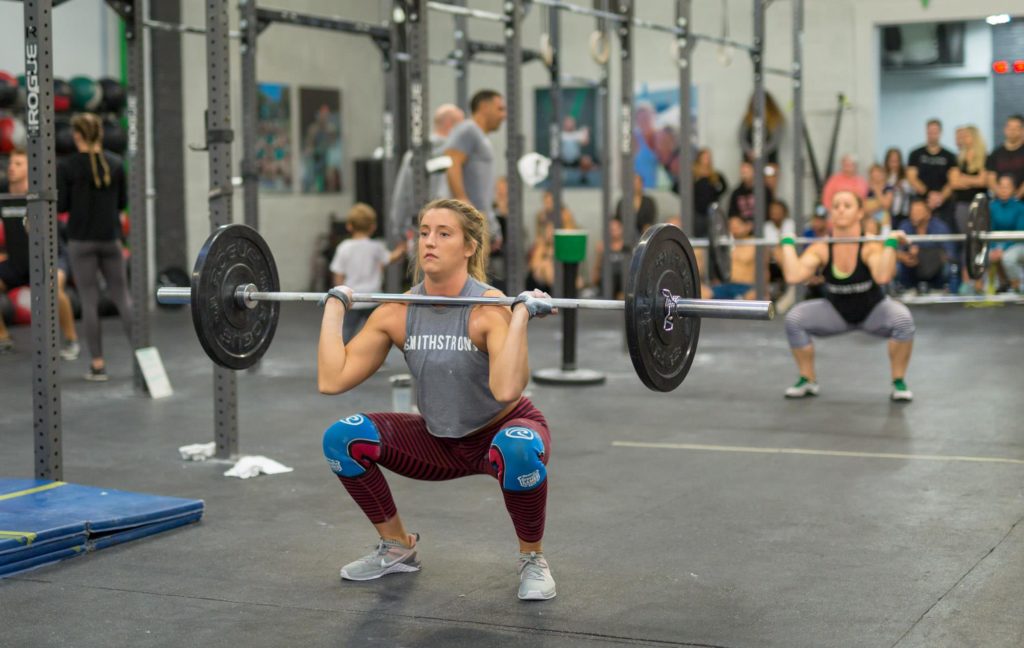
Tips & Tricks for More Efficient Thrusters
Written by Sage Burgener
I like to make it a habit of making everything about me and/or Olympic weightlifting, so let us just pretend for a second that the thruster is a clean and jerk and talk about some points of performance for it.
When doing a ton of thrusters in a workout, efficiency of movement will be imperative if we hope to maintain a steady tempo. In my opinion, efficiency of our movement will come down to these three things: stability through our feet, proper rack positioning and bar path.
Stability Through the Feet
Your feet are your base. They set the stage for the whole rest of the movement, so don’t take foot placement and weight distribution lightly. Wherever your feet are in your back squat and front squat movements are where your feet should be placed in your thruster. This is where you’re strongest and this is where your body likes to squat from.
Because the weight is placed in front of you, maintaining balance through the whole foot (maybe even more slightly back towards the back of the foot) will be key for ensuring that weight does not pull you forward onto your toes. When we get tired,being pulled forward happens quite easily. Feel your feet against the floor and make sure you’re not sitting too far forward or too far back.
Proper Rack Positioning
A proper rack position can be tricky for a thruster. Across the board, I tend to see two different kinds of thrusters. One, an athlete tries to mimic a clean and places the bar all the way back on the finger tips as they descend into their squat. While this is great for keeping the weight on their whole body as they squat, it does create some struggle as they try to fluidly transition into their press. This is because the bar continues to sit too far back on the fingers. If you’ve ever tried to press or jerk off your finger tips, it’s extremely awkward…for everyone involved.
On the other hand, some athletes focus too much on the pressing motion of a thruster and they keep the bar all the way in their hands, causing the elbows to point down as they descend into their squat. This places too much weight forward on their arms which makes the weight feel 100#’s heavier than it needs to.
So, lets find some sort of balance. Try and keep the bar more towards the center of your hand. Not on the finger tips and not all the way in the palms. This will allow for your elbows to stay slightly up on the squat, but also a little more in your hands for when you go to drive and press the bar overhead.
Also, keeping your hands as relaxed as possible while doing this will help that bar rotate as you fluidly transition from squat to press and then back down to squat.
Bar Path
Last, we must understand the best, most efficient bar path. So, I leave you with this:
“The fastest distance between two points is a straight line”. -Sage Burgener (Blogger, coach, physicist).
Don’t fall into the habit of looping the bar around your face in order to avoid potentially damaging your money maker. Visualize a straight line off to the side of you as you move through your thrusters and keep the ends of the bar in line with that straight line through your whole movement. The less that bar moves out of it’s most efficient path, the quicker and more fluid you will move through this movement that was surely invented by the devil himself.
Hopefully these tips help make thrusters less painful and more efficient for you next time they are in your workout!
Also Check Out…